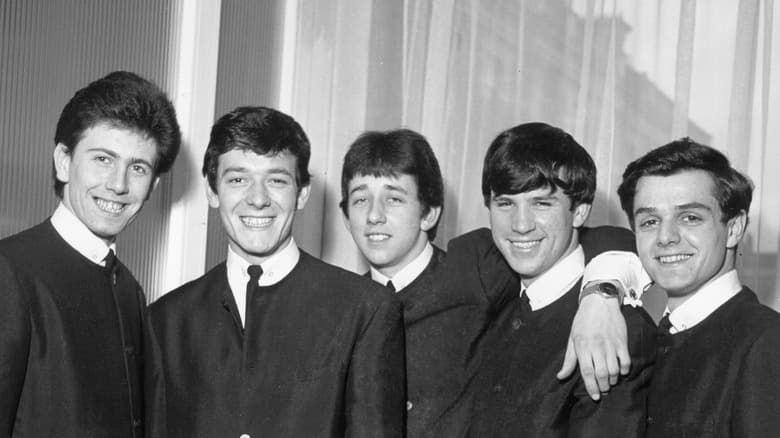
The Hollies’ “We’re Through”: A Definitive Breakup Anthem with Enduring Charm
There are certain records that, from the very first strum, transport you back to a specific moment in time, a particular feeling. For many of us who remember the vibrant, exciting musical landscape of the mid-1960s, The Hollies’ “We’re Through” is precisely one of those songs. Released in September 1964 as a single, this catchy, defiant tune quickly became a radio staple and a fan favorite. It ascended to a commendable No. 7 on the UK Singles Chart, cementing The Hollies’ status as one of the preeminent British Invasion bands. This track wasn’t just another pop song; it was a declaration, a spirited goodbye to a relationship that had clearly run its course. It was a standalone single at the time, though it would later appear on compilations like Hollies’ Greatest (1968), a testament to its lasting popularity.
“We’re Through” holds a significant place in The Hollies’ early discography. Unlike many of their earlier hits which were often covers of American R&B tunes, this marked a pivotal moment where the band’s burgeoning songwriting talents truly shone. It was written by the formidable songwriting trio within the band: Allan Clarke, Tony Hicks, and Graham Nash, often credited under the pseudonym “L. Ransford” in those early days. This self-penned hit demonstrated their growing confidence and ability to craft original material that was every bit as compelling as the songs they were interpreting. The story behind the song isn’t one of grand, sweeping narratives, but rather a universal tale of a relationship reaching its bitter end. It speaks to the raw, personal experience of betrayal and the strength found in deciding to walk away from someone who “never treat[s] [you] tenderly.”
The meaning of “We’re Through” is refreshingly direct and incredibly relatable. It’s an anthem of liberation from a toxic relationship. The lyrics express the pain of being “taken for a ride,” of a partner’s infidelity (“you told me he was just a friend, but I found out some way I’ve seen him every day with you”), and the ultimate decision to break free. “I should be better off without you / You take a pride in making me blue / I’m telling you my friend / It’s got to be the end / We’re through.” There’s a powerful sense of self-respect and newfound resolve in these lines. It’s about moving past the tears and embracing a future free from emotional manipulation. For anyone who has ever felt trapped or undervalued in a relationship, this song offers a vicarious catharsis, a sonic handshake of solidarity.
What truly elevates “We’re Through” beyond a simple breakup song is The Hollies’ distinctive sound. Their signature three-part vocal harmonies, shimmering and tight, are instantly recognizable and infuse the track with an undeniable energy. Allan Clarke’s lead vocal, delivered with a perfect blend of hurt and defiance, carries the emotional weight, while Tony Hicks’ crisp guitar work and Graham Nash’s rhythmic contributions provide a vibrant, driving backbone. The production is clean and sharp, characteristic of the era, allowing each instrumental and vocal layer to shine through. It’s a testament to the band’s musical prowess that they could take a seemingly melancholic subject and infuse it with such an uplifting, almost triumphant feel. The repetition of “We’re through, we’re through, we’re through” at the song’s conclusion isn’t a plea; it’s a firm, resolute declaration, almost a chant of newfound freedom.
“We’re Through” remains a vibrant snapshot of the British Invasion sound: melodic, impeccably performed, and emotionally resonant. It captured the zeitgeist of a generation finding its voice, both in music and in personal relationships. For those of us who danced to it on crackling radio waves or spun it countless times on our turntables, it evokes memories of youth, self-discovery, and the exhilarating, sometimes painful, journey of finding our own way. It’s more than just a hit record; it’s a reminder of a time when pop music was crafted with skill, heart, and an infectious spirit that continues to resonate today.